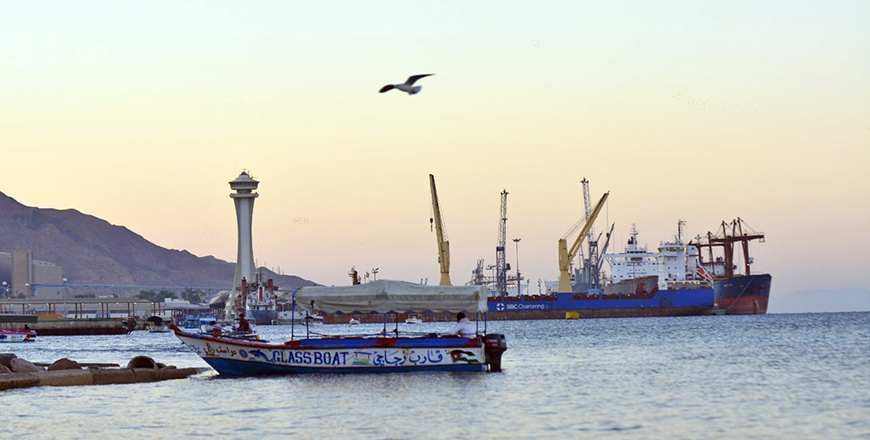- Local News
- Sun-2020-04-19 | 02:52 pm

The first decision allows all ASEZA’s directorates to go back to work on Sunday with no more than 50 per cent of the cadres of each directorate, determined by the person in charge, according to a statement issued by the authority.
Work will be carried over a morning shift from 10:00am to 4:00pm, while night shifts will be determined by the person in charge, who will also be responsible for distributing the necessary permits, in addition to determining the way the directorates they are supervising will conduct their work.
The human resources department will also issue the instructions of health and public safety that all workers will have to follow to prevent a spread of COVID-19.
The second decision identifies the companies that will go back to work, which are the Aqaba Development Corporation, Aqaba Facilities Management Co., Aqaba Transport Company, Aqaba Airports Company and the Aqaba Railways Company, according to an ASEZA statement.
The facilities that will remain closed and will not be resuming work are the Aqaba Marine Park, public and private beaches, parks and gardens, sports fields and public transport buses, according to the third decision.
The fourth decision states that the curfew will still be imposed on the following activities: places of worship, schools, universities, colleges, training centres, tribal and family gathering diwans (courts), restaurants’ dining halls, coffee houses, gyms, wedding halls, funeral homes and any activities related to parties and marriage celebrations.
Aside from those, other economic activities in Aqaba will be allowed to resume from 10am to 6pm under the conditions and requirements published on ASEZA’s website on safety and preventive health measures to combat the spread of the coronavirus.
If any institution requires operating outside the designated hours for "justified and important reasons”, an application must be submitted officially to ASEZA through the designated website.
Under the fifth and last decision, licenced fishermen will be allowed to fish between 5:30am and 4:00pm under the following conditions: Only two people can be present in each boat, fishermen must use safety and health tools and boats and fishing tools must be disinfected and sanitised regularly, the statement said, noting that Royal Jordanian Navy and the cadres of the Aqaba Marine Park will monitor fishermen’s commitment to the instructions and conditions.
Commenting on the decisions, Economist Husam Ayesh said that it is important to keep people safe and protected in order to allow the economy to gain traction, noting that gradually allowing some sectors to resume work while committing to preventive measures is a positive indicator on the government’s way of seizing opportunities where it is safe.
In a phone call on Saturday, Ayesh said that committing to safety and health instructions will pave the way to allowing these measures to be applied in other governorates.
"According to global predications, the economy will suffer from contraction, the degree of which will differ from one country to another. In Jordan, it is expected that the contraction will reach 3.5 to 3.7 per cent,” Ayesh said, noting that the figures depend on fighting the virus in the short upcoming period.
However, if the crisis is prolonged, countries will lose a lot of GDP growth, and the contraction will grow bigger, "which will create dangerous results,” Ayesh said, noting that commitment to health instructions is a core factor to preserving the economy, employees’ health and that of the citizens.
"The cost of not resuming work will affect the economy and all types of workers, their salaries and even workers in the unorganised economy, which has become under the responsibility of the government,” the economist said, adding that remote work should be implemented wherever possible.
"All ways that can create distancing and preserve health need to be adapted to because they will shape how labour is going to be,” the economist concluded.
"The issue of the lock-down, as long as it continues, will create a large economic problem, especially for daily wage workers, which is why the government decided to bring back work life to areas with zero cases,” economist Wajdi Makhamreh told The Jordan Times on Saturday over the phone.
"Being the only port, and as ASEZA has a lot of industries, business activities in the port city will gain traction after interruptions, but gradually economic growth will start again from the south, which will be very positive and revitalise many sectors,” he said.
Makhamreh said the decisions will help many workers who have suffered from work stoppage to go back to work and resume export of surplus products.










